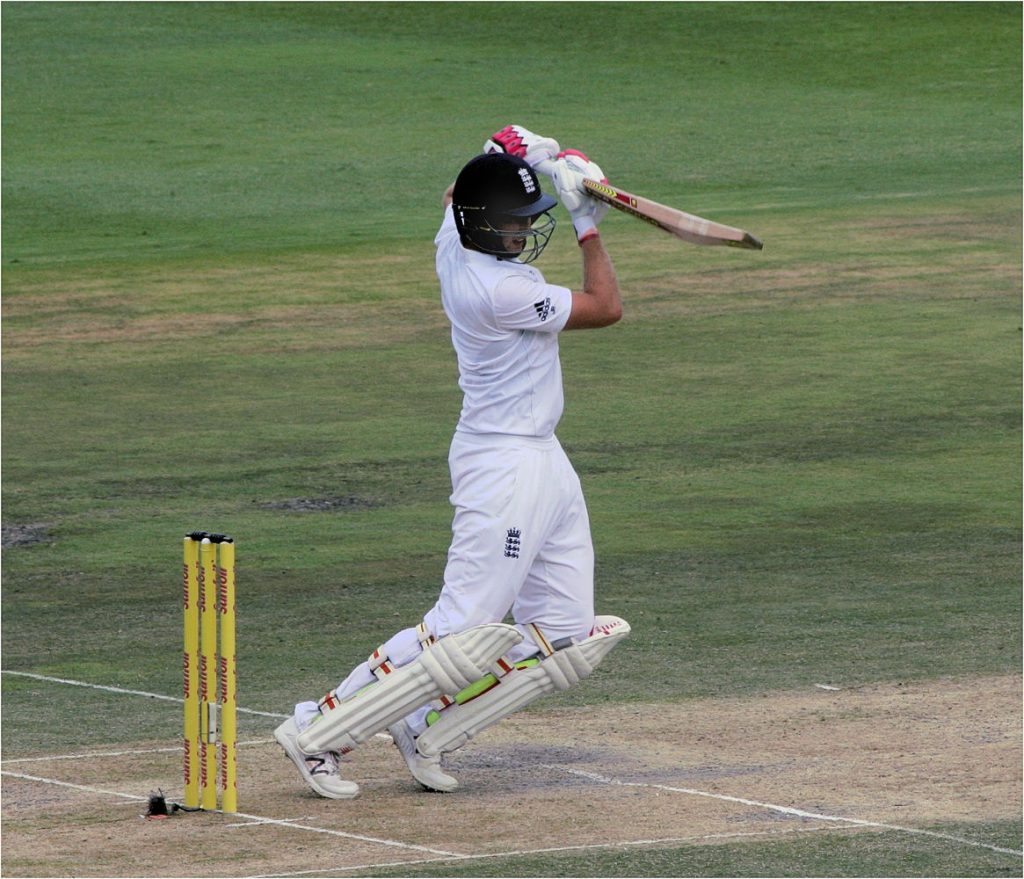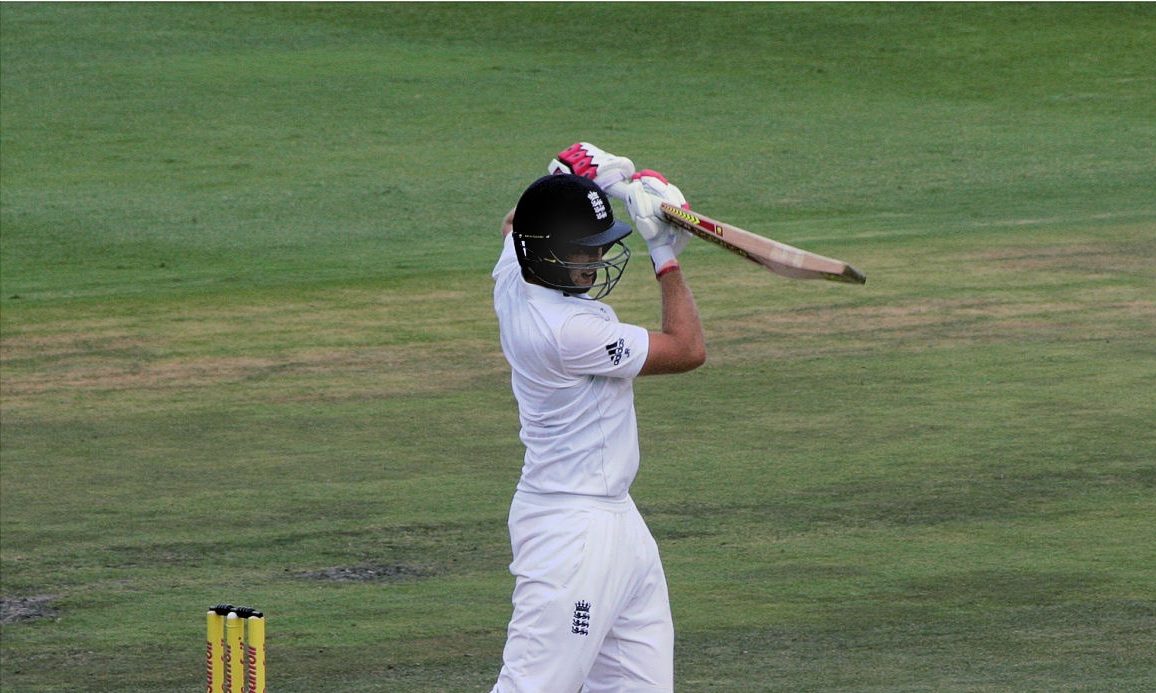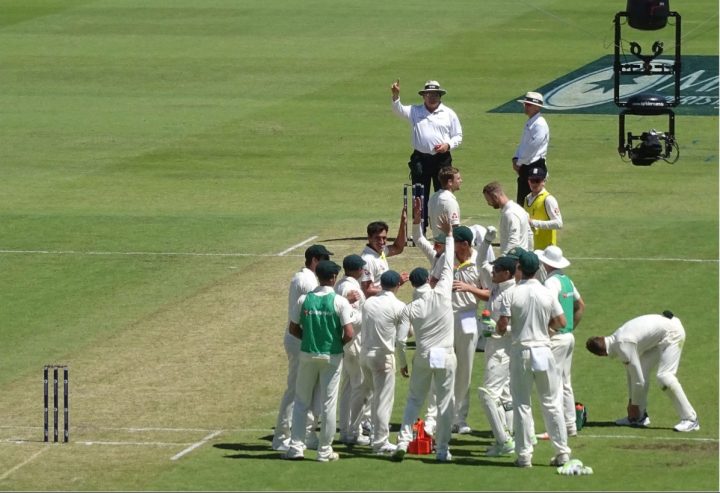Joseph Edward Root. Born 30 December 1990, Sheffield, Yorkshire. If he were to be forced to retire tomorrow, he can look back at his career with an immense amount of pride. 23 test centuries, 2 Ashes victories, a World Cup to his name and the record number of wins as England test captain. Pretty impressive.
However, if there were to be criticism levelled at Root’s career, it’d be his record down under. English and Australian players are defined by the Ashes. What began in 1882 has now developed into one of sports greatest rivalries. A raging fire poured into a 10.5cm tall terracotta urn, which dictates the minds of cricket fans, players, and commentators alike.
Root’s first taste of it came in 2013, arguably the peak of England’s great era lead by Andy Flower. Following the thriller at Trent Bridge (including some antics from Stuart Broad), it was down to the Home of Cricket for the second Test. Not only did Root announce himself to Ashes cricket in that week, but he announced himself to Test cricket.
Given a life on 8 with a mix up between then Australian skipper Michael Clarke and wicketkeeper Brad Haddin, Root capitalised and brought up his 50 with a trademark back foot punch. A baby-faced Root continued to charge on, scoring 180 to set up an England victory.
England went on the win the series 3-0, with Root averaging an adequate 37.66. But in the year that saw back-to-back Ashes series, England and their all-conquering empire led by Flower crumbled haplessly. A 5-0 drubbing spelt the end of an era.
Following being dropped for the 5th Test in Sydney, Root regained his place in the side for the first Test vs Sri Lanka in 2014. That summer, fortunes changed for Root, scoring 518 runs at an average of 103.60 in the 3-1 victory at home to India.
For the next couple of years, England’s new golden boy didn’t look back. In 2015 Root once again delivered in a home Ashes series, with quickly made centuries at Cardiff and Nottingham. A move from opener to the middle order allowed Root to score more expansively, and he was named in the ICC Test team of the year in 2014, 2015 and 2016 as a result of his excellent form.
It was in 2017 where Root was given the England Test captaincy. It began so sweetly with 190 versus South Africa. He maintained his good form at home to the West Indies that summer, with another century notched up during the day/night Test at Edgbaston. However, that winter, things took a downward turn.
Australia. It’s called the holy grail of English cricket for a reason. So many have tried and failed to win out there. The joys of 2010/11 were flanked by two 5-0 slaughtering’s in 2006/07 and the aforementioned 2013/14 series. In 2017, England arrived in Brisbane with home series wins against South Africa and West Indies under their belts. With Ben Stokes not in the squad after the Bristol nightclub incident, England and Root were up against it facing a rampant Australian side baying for blood.
In the first 2 Tests, Root managed 2 half-centuries: scores of 51 and 67 in the first and second Tests respectively. Without a meaningful contribution in the 3rd Test match attention turned the MCG, where a drop in wicket meant a batting paradise. Alastair Cook duly cashed in scoring 244*. But once again Root passed 50 but failed to make a 3-figure score. It was the same disappointing story in Sydney: 83 in the first innings and 58 retired hurt in the second innings after suffering with severe dehydration.
Lots of starts, but no big scores. Classy 80’s don’t win many Test matches but determined 180’s do (see Lords 2013). Root’s conversion rate was therefore subject to scrutiny by many commentators. And his captaincy was under the microscope, too.
Leading a comparatively weak England squad against superior opposition was tough. Despite having Anderson, Broad and Woakes at his disposal under leaden skies, the decision to bowl first in Adelaide bemused some. A telling criticism came from Australian legend Ian Chappell, claiming that Root was far too defensive in his ways and more concerned about defending runs rather than actively looking to take wickets.
The 4-0 bruising left for a lot of soul searching. Despite a 4-1 home win versus India in the summer of 2018, which saw Ben Stokes return to the England side, Root’s own form was really struggling: just one century in the home summer of 2018 and none in the home summer of 2019. Root was no longer considered to be one of the top players in the world. The ‘big four’ in Test match cricket was losing a member with Smith, Kohli, and Williamson pulling away. However – post lockdown – Root has taken his game to a new level. So much so, in fact, that it’s now incomprehensible to ignore him when talking about the top batters in the world.

2021 was always going to be a huge year on paper for England, with 9 tests versus India and then the Ashes down under. However, he’s come through the first part of the itinerary fantastically well.
The year started off in Galle. Hot and humid with balls spitting out the track in typically Sri Lankan fashion. Whilst England’s batting unit struggled, Root was a class above. He effortlessly worked the ball all around the park, particularly on the leg side where he swept magnificently on his way to a match-winning 228 runs. The second test saw more of the same: 186 crafted a little slower but still setting up a 6-wicket victory. One series down; one series won.
Up next were India. Fresh from their heroics a couple of months earlier at the Gabba, we knew they would be tough opposition. Chennai was the venue for the first 2 test matches, and Root once again reaffirmed his spot at the top table of international batting. His 218 helped England to a 0-1 lead in the series. However, things didn’t go to plan thereafter with India’s spinners tangling England in a web on favourable tracks. A 3-1 defeat resulted.
New Zealand (on their way to becoming world test champions) were up next. England now enjoyed home advantage but it still proved a difficult series. An uninspiring draw in the first Test led to disaster in the second, with a day 3 debacle leaving New Zealand just 38 to chase, which they managed with ease. Root’s imperious form over the winter looked a distant memory and the confidence was ebbing away.
The subsequent 5 Tests against India were made harder by the absence of Stokes. However, Root’s response showed admirable maturity and man management skills, “I just want my mate to be ok” were his words. There was nothing on his loss to the team, and no pressure on Stokes to return quickly.
Rain offered England a get out of jail free card in the first Test before attention turned to Lord’s. This time Root had found his touch: a superb 180 at Lords…sound familiar? Come day 5 England were in the ascendency. India had a lead of 154 with 4 wickets remaining. Pant was dismissed early, and England were cruising towards victory. But then in came Jasprit Bumrah and the match turned for the worse. Why had Root’s team gone so defensive? Could he handle these high-pressure situations? The pressure was back on.
Headingley was the venue for the 3rd Test, home of Root’s county, Yorkshire. The Lord’s shambles was quickly forgotten as India were well beaten by an innings and 76 runs. Not only were England back, but Root was back as well: 121 in front of his home fans. Yet another match-defining conversion. Sadly, however, India won the 4th game of the series and then pulled out of the 5th Test at Old Trafford, leaving Root’s side frustrated.
Attentions now turn to the winter and the small matter of regaining that little urn. The pressure has also been ramped up by the racism scandal, whilst England’s preparations have been severely hampered by rain. It never rains, it pours for Ashes tourists down under.
How things will go on December 8th is anyone’s guess. However, one thing’s for certain. This is Root’s time to assert himself, not just an all-time great of English cricket, but also as modern great of the game worldwide. Secondly, it seems (weather permitting) that the Ashes will go ahead, regardless of whether Root performs or not.
Joe Ross









“2013, arguably the peak of England’s great era lead by Andy Flower.”
Jeez, these myths don’t become true by endless repetition. England under Flower peaked in 2011. Don’t losing 3-0 to Pakistan, losing 2-0 at home to SA and failing to win a Test against NZ for the first time since the discovery of the kiwi count because the opposition wasn’t Australia or India?
It wouldn’t matter if the myth was harmless but it’s not. The combination of Flower’s relentless fridge-kicking methods and Giles Clarke’s relentless schedules burnt the team out in two years. The “it was all brilliant until the first day in Brisbane” myth sloughs off all the blame for that on to the evil KP and lets management off the hook… just as it’s meant to do.
I’d agree that we were on the decline bu 2013 – it was the Saeed Ajmal series in the UAE that really started the rot – but I think we were technically still top of the ICC Test rankings at this point. Maybe that’s what Joe (the author) was referencing.
Nah, South Africa claimed the mace after beating England in 2012, and they would hold onto the rankings for almost 2 years, despite obvious decline.
Ah yes that’s right. I remember that SA Test at the Oval when Amla and Kallis batted forever. I never particularly liked the Strauss / Flower methodology of bowling dry and waiting for the batsmen to make a mistake. Players as good as Amla / Kallis at their peak didn’t make any mistakes! I was always a 5 bowler man. Having said that, it worked beautifully against an ill-disciplined Australian batting line up in 2010/11.
Whilst I agree with your general point Simon, I don’t get the bit about the discovery of the kiwi unless you have some special botanical insights!…although I also agree it was a terrible result against a not especially strong NZ team.
England had failed to win a test in three of the most recent 12 series before 2013, and had failed to win the series in another two. At one point they didn’t win a test in three series, two of which they lost.
Just to add…that myth was also partly what brought us Flower being kept on in various rather ill-defined but clearly influential ECB roles long after his sell-by date.
Root is an interesting character. He has an immense amount of talent and has certainly justified his place in the England line up time and again; twenty three centuries in test matches is more than adequate proof of that. What intrigues me and what will mark him down as a true ‘great’ is his ability to marshal the great diversity of talents that make up the England team. It is a skill that the might Ian Botham did not have nor, I suspect will Stokes have should the opportunity come to lead the team. Lightning, it would seem, has struck Mr Root twice – once labelled ‘batsman’, with the second labelled ‘leader’
Peter Drake
teacher Hexham
cricket nut
Root’s captaincy has never been more than adequate but you can’t blame him as he’s had to learn on the job, or the selectors, as he’s the only shoe in batsman we’ve had since Cook. Bowlers rarely make good captains, even spinners, of which we have had precious few for years, so there’s no obvious alternative. Personally I would pick a proven county captain and groom him for the job, paying special attention to individual technical weaknesses. Even Brearley managed a serviceable test average and that as an opener where technical weaknesses are most obviously exposed. After all we have a number of test regulars with technical issues having remained unsolved for years so it’s not exactly filling an established test place with a lesser mortal.
Root should be proud of his achievements. He’s a class act as a batsman and seems to enjoy the challenge of captaincy. He’s had no real experience in the changing room to back him up either.
You’re an extremely generous man Marc, if you think that Brearley’s average of less than 23, with no hundred in almost 40 tests, was “serviceable”–even in the 1970s!
Your county captain argument is interesting, although I’m really not a fan of specialist captains. However, who? Four of the current 16 county captains are foreign, and most of the others are failed or mediocre England (or Lions) players who are over 30…in which case you might as well make Buttler or Burns captain. There are only four who are under 30 as far as I can see, one of whom hasn’t yet taken up the role and of whom only Tom Abell and maybe Will Rhodes are really a “proven county captain”.
Interestingly though, the two counties with captaincy vacancies at the moment were captained at times last season by young players who might be able to be groomed in the way you describe: Carlson (who sounded like a very good captain) and Bracey.
I do wonder, though, if the next captain isn’t hiding in plain sight…although now is probably not the time to talk about it too much given the year he’s had–and that’s Ben Stokes.
Captains are so important in cricket. It’s not just about tactics, there’s man management as well. Someone has to be responsible for the on field decisions and their timing. Coaches and managers can only advise and then not on the field of play. Root has certainly become more confident in his decision making. You can’t do it by committee.
All rounders have enough to think about with their personal contributions. Neither Botham or Flintoff worked out well as they had no real experience of captaincy beforehand, just like Stokes really.
You can sight the likes of Steve Waugh as the exception, but they are that.
Holder, Benaud, Kapil Dev, Imran, Constantine, Sobers, Shakib, Mushtaq Mohammad, Pollock, Barlow, Procter, Greig? I’m not convinced–I think that’s a stereotype, just as much as the “you can’t give the captaincy to a bowler” one.
What’s more important is that they’re someone who has the qualities which make a good captain, regardless of their role in the team. Which is why some of those in the list above were good and some mediocre.
It’s also the reason why neither Flintoff nor Botham were good captains–it had nothing to do either with their role in the team nor with their lack of captaincy experience, just the fact that they were largely instinctive and not astute enough (and in Botham’s case, a pretty poor people-manager I suspect). I don’t get the impression of either of those things from Stokes these days.
In any case, if the “personal contribution” factor outweighs everything else, Root should never have been let anywhere near the captaincy at the point that he was!
How many of those were seen as great captains. Of those you listed only Bennaud and Barlow rated for me. The rest were star players picked for the same reason as Root, leadership by example.
I’d certainly include Imran in that list. Sobers wasn’t a great captain, largely because he forgot other people had to work at the game.
Sorry, should have added that Australia’s new captain is a bowling all rounder, Pat Cummins.
Cummings is a bowler who can bat, not an all rounder, they’ve always been rare. For me an all rounder is someone who can make an equal contribution with bat or ball. Imran certainly counts as one, but never struck me as an outstanding captain.
Agree about the myth making here. The folly of Flower’s overbearing dictatorship and berating of the team and his ruthlessness was creating real cracks which would end in disaster. His favouritism and his vendetta against Pietersen would have profound effects for years to come. Also Joe did not save the Test at Lords. That job was done by Bell in the first innings when he came in at thirty something for three and England were facing a tough Aussie bowling attack on the hunt. His century was the one that counted. Bell had already put the runs on the board in the first Test with his ton. And then another century at Durham when runs were needed in the battleground of the second innings. England were very unfortunate that pure greed meant that instead of relishing and enjoying their victory they had to go to Australia and do it all over again within a few weeks. What madness. A sign of the ECB road in years to come. We are where we are. Post Hundred. Post neglect of County Cricket and Test Cricket etc etc. Joe is a magnificent batsman in an era where he stands alone. He is not a good captain but he’s not been helped by poor selection and rotten leadership at the top. Strike out the word leadership. It’s not fair to judge him by decisions that have robbed Test cricket of proper attention. The jury isn’t out. He is a great batsman.
I think most people here would agree that the ECB treated Pakistan shoddily and owe them plenty – but was anybody’s answer to play SEVEN T20Is?….
Depends whether the question was ‘how much money can we help Pakistan make’?
I think it’s ridiculous (except from the point of view of James’s question), but at least I feel there’s some logic to it. The original series next winter was five (albeit ODIs not T20s, but it makes sense to change that given that it’s been brought forward to right before a T20 WC)–plus the two that were scheduled for this year. And the two from this year are at least thank yous for something that needed thanks–coming to the UK at the height of the pandemic at a time when a lot of people were very nervous about the situation and one result was being in a very tight bubble for nine weeks.
Whereas the NZ test series in early 2023 is an entirely new series which is essentially a thank you note for a series which should never have been played in the first place, and which was supposed to partly make up a shortfall that was substantially caused by the ECB’s own hubris in splurging out so much money on the Hundred. And it means that at a time when the international calendar has got insanely crowded, England will have played a non-WTC series against NZ (what about all this context that’s needed for test cricket then? Hello Indian bookies!!) in three out of four years.
Captaincy has been a big problem for England for some. For many years we were lucky to have a succession of captains, many of whom were natural leaders, but all of whom had spent years fielding alongside, often quite literally, and learning from, experienced ‘old hands’, themselves often past, present or future England captains – the likes of Close, Illingworth, Brearley and Fletcher.
That no longer happens. Promising players are put on central contracts and are seldom involved in what little red ball their County plays, and there is nothing done to groom FECs. It’s rare to see so few County captains in an England side as there are now.
Since Vaughan, selection of the England captain has been haphazard to say the least, and the coaches we’ve had post Fletcher don’t seem to see helping the captain develop in that role as part of their function. Root, not a natural captain, lacking experience and being appointed much too early on the basis of ‘who else is there?’ was particularly badly served in that regard.
I would love to see Root give up the captaincy to focus on his batting (and bowling), but it’s not going to happen. When he eventually retires, it will be back to looking around the dressing room; pointing at the last player to score a century/take five wickets and saying ‘who else is there’ ?
I think the Yorkshire racism scandal is likely to leave Root, at best, weakened. He was a roommate of Gary Ballance, who is heavily implicated, and he appears to have done nothing. Hopefully it won’t be any worse than that.